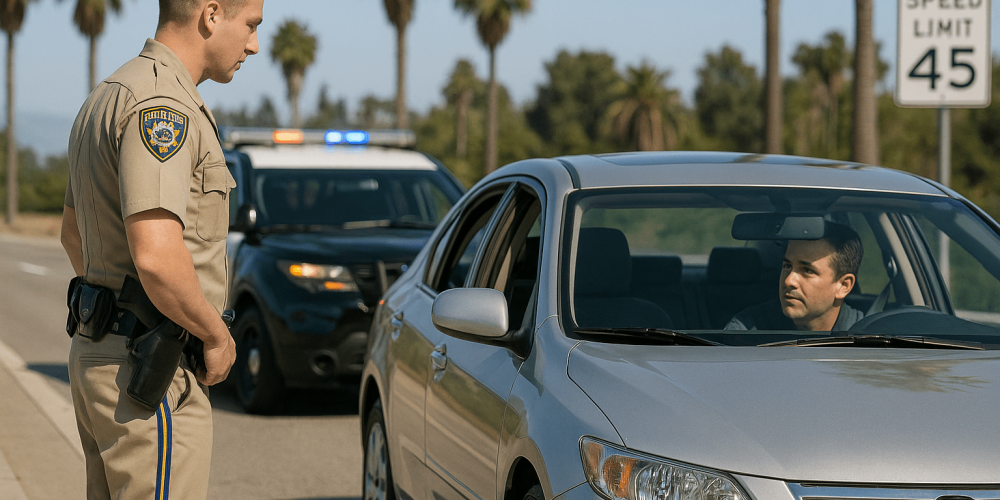DUI in California – What Every Driver Needs to Know
A DUI in California can result in serious legal consequences, even for a first offense. California has strict DUI laws designed to prevent impaired driving and keep roads safe. Whether you’ve already been charged or you’re simply trying to understand the law, this guide explains what qualifies as a DUI, what penalties to expect, and what steps to take next.
What Constitutes a DUI in California?
In California, a DUI is typically defined as operating a vehicle with a blood alcohol concentration (BAC) of 0.08% or higher. However, drivers can still be charged even if their BAC is below 0.08%—especially if they are impaired by alcohol, prescription medication, or illegal drugs.
Common Situations That Can Lead to a DUI Charge:
- Driving under the influence of alcohol
- Operating a vehicle while impaired by marijuana or other drugs
- Failing field sobriety or chemical tests
- Refusing a breath or blood test (which leads to automatic penalties)
Importantly, California’s implied consent laws mean that refusing a chemical test can trigger immediate license suspension and additional consequences.
Penalties for a DUI in California
Generally, a DUI in California is classified as a misdemeanor. However, penalties increase significantly for repeat offenses or when aggravating factors are present, such as causing injury, property damage, or having a child in the vehicle.
First-Offense Penalties:
- Fine of $390 to $1,000 (plus thousands in additional fees)
- Up to 6 months in jail
- License suspension for 4–10 months
- DUI education program (3–9 months)
- Installation of an ignition interlock device
Second Offense (within 10 years):
- Up to 1 year in jail
- 2-year license suspension
- 18–30 months of DUI school
- Mandatory ignition interlock device
Felony DUI:
- Causing injury or death while impaired
- Third or fourth DUI within 10 years
- Can lead to multiple years in state prison
If convicted, you’ll likely need SR-22 insurance and may be ordered to attend DUI/DWI classes.
How a DUI in California Impacts Your Future
The long-term effects of a DUI reach far beyond initial penalties. In fact, a DUI conviction may remain on your record for up to 10 years and affect various aspects of your personal and professional life.
Lasting Consequences Include:
- Criminal Record: A DUI stays on your record for 10 years in California
- Employment Issues: Employers may be hesitant to hire someone with a DUI conviction
- Travel Restrictions: Some countries restrict entry for individuals with DUI records
- Skyrocketing Insurance Costs: High-risk policies and SR-22 forms are often required
- Professional License Impacts: Teachers, nurses, and other licensed professionals may face disciplinary action
Therefore, it may be beneficial to seek legal representation after an arrest. A qualified DUI attorney may help reduce potential consequences and explore options to address the charges.
Get Help With a DUI in California Today
Facing a DUI without legal assistance can result in harsher penalties and a more stressful experience. California prosecutors are known to pursue aggressive sentencing—especially for repeat or aggravated offenses.
Fortunately, you don’t have to face this alone. Here’s how to take action:
- Get a free evaluation from a local DUI attorney
- Find a DUI attorney with experience in handling DUI cases
- Explore your legal options to protect your rights and license
Frequently Asked Questions (FAQs)
1. Is a DUI in California a felony or misdemeanor?
Most DUIs are misdemeanors. However, it becomes a felony if it’s your third or fourth DUI, or if you caused injury or death.
2. Can I refuse a breathalyzer test in California?
Yes, but refusal results in immediate license suspension and additional penalties due to implied consent laws.
3. How long does a DUI stay on your record in California?
A DUI conviction stays on your record for 10 years and can be used against you in future cases.
4. Can a DUI be expunged in California?
In many cases, yes—especially if you completed probation and were not sentenced to prison.
5. Will I need an ignition interlock device?
Yes, for most convictions, especially if it’s not your first offense or your BAC was over 0.15%.
Key Takeaways
- A DUI in California can result from alcohol, drugs, or prescription medication.
- Penalties increase significantly with each offense or if injuries are involved.
- You may face jail time, license suspension, and mandatory DUI classes.
- A DUI stays on your record for 10 years and impacts your future opportunities.
- Legal representation may help reduce charges or improve the outcome of your case.








